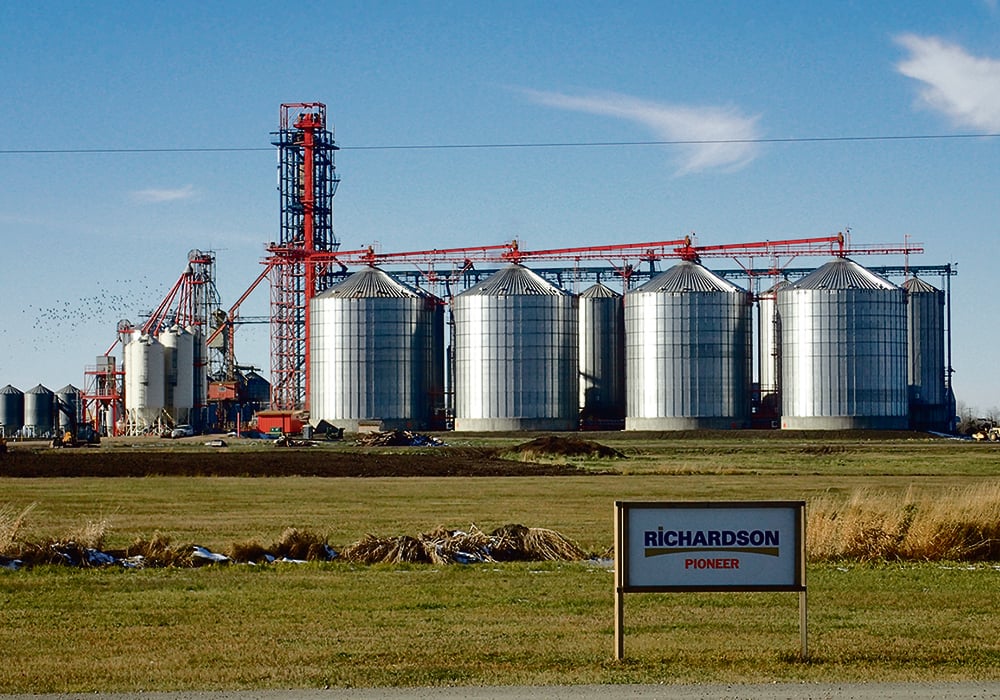Canadian grain giant says it aimed to make a splash with the purchase of a durum mill, three grain elevators and a commodity trading office
Canada’s largest grain company is expanding its reach into the processing sector and into the U.S. market.
Richardson International has acquired Italgrani USA Inc., the largest durum miller in North America.
The deal includes the mill in St. Louis, Missouri, three full-service grain elevators in North Dakota and a commodity trading office in Minneapolis, Minnesota.
The mill has the capacity to process 1,800 tons of durum wheat per day into 1,400 tons of semolina or flour.
Jean-Marc Ruest, senior vice-president of corporate affairs and general counsel for Richardson, said it was important for the company to make a big splash with its first investment in the durum processing sector.
Read Also

Farmers urged to be grain-safe this fall
Working around grain bins comes with risk, from farmers falling to drowning in grain: Experts have five tips to help avoid grain-related accidents this harvest.
“With one acquisition you have a meaningful presence,” he said.
“We become an important player right out of the gates.”
Ruggero Benedini, chief executive officer of Progetto Grano, the majority shareholder of Italgrani, thinks the Canadian grain icon is a good fit as the new owner of the business.
“We are confident that Richardson will understand the unique culture and business qualities that made Italgrani so successful over the years and will contribute to the further growth of the business,” he said in a news release.
Richardson has primarily been a grain handler and exporter during its 164 years in the business.
Its first foray into the processing industry was the 1999 acquisition of the Canbra Foods canola crush plant in Lethbridge.
Since then, the company has added a variety of oilseed processing assets, including building a canola crush facility in Yorkton, Sask., that is currently undergoing expansion.
In 2013, Richardson entered the oat and wheat milling business when it acquired in excess of $800 million of Viterra’s assets, including its Can-Oat Milling business.
The purchase included an oat mill in South Sioux City, Nebraska, and a wheat mill in Dawn, Texas. That was the Winnipeg company’s first foray into the U.S. market. The wheat mill has since been sold.
Ruest said it is important to have the scale and expertise of the Italgrani operation for its initial thrust into the durum milling business.
“It gets us to where we want to be from a processing standpoint much quicker than a new build,” he said.
The company has a history of acquiring existing assets when it first enters a new line of business, although it is not opposed to new builds once its feet are wet.
“It’s considerably more challenging to build something new in a new area that you haven’t been previously exposed to,” said Ruest.
The acquisition is part of the company’s growth and diversification strategy, which is increasingly focused on the U.S. market.
“It’s a natural place to look at for future growth,” he said.
Richardson is comfortable with where it is at in the Canadian market, although the company still intends to invest in its Canadian assets, such as the recent announcement that it will double the size of its Yorkton crush plant.
The three elevators it just acquired in North Dakota are the company’s first grain-handling assets in the U.S.
“That allows us to expand our more traditional business of grain handling and crop input retailing,” said Ruest.
The North Dakota elevators will be used to provide durum to the mill in St. Louis but Richardson may also use its existing Canadian grain handling network to incorporate some Canadian durum into the mix, he said.
Ruest said the mill recently underwent a significant expansion but Richardson still intends to inject further capital into all of its newly acquired assets.
















